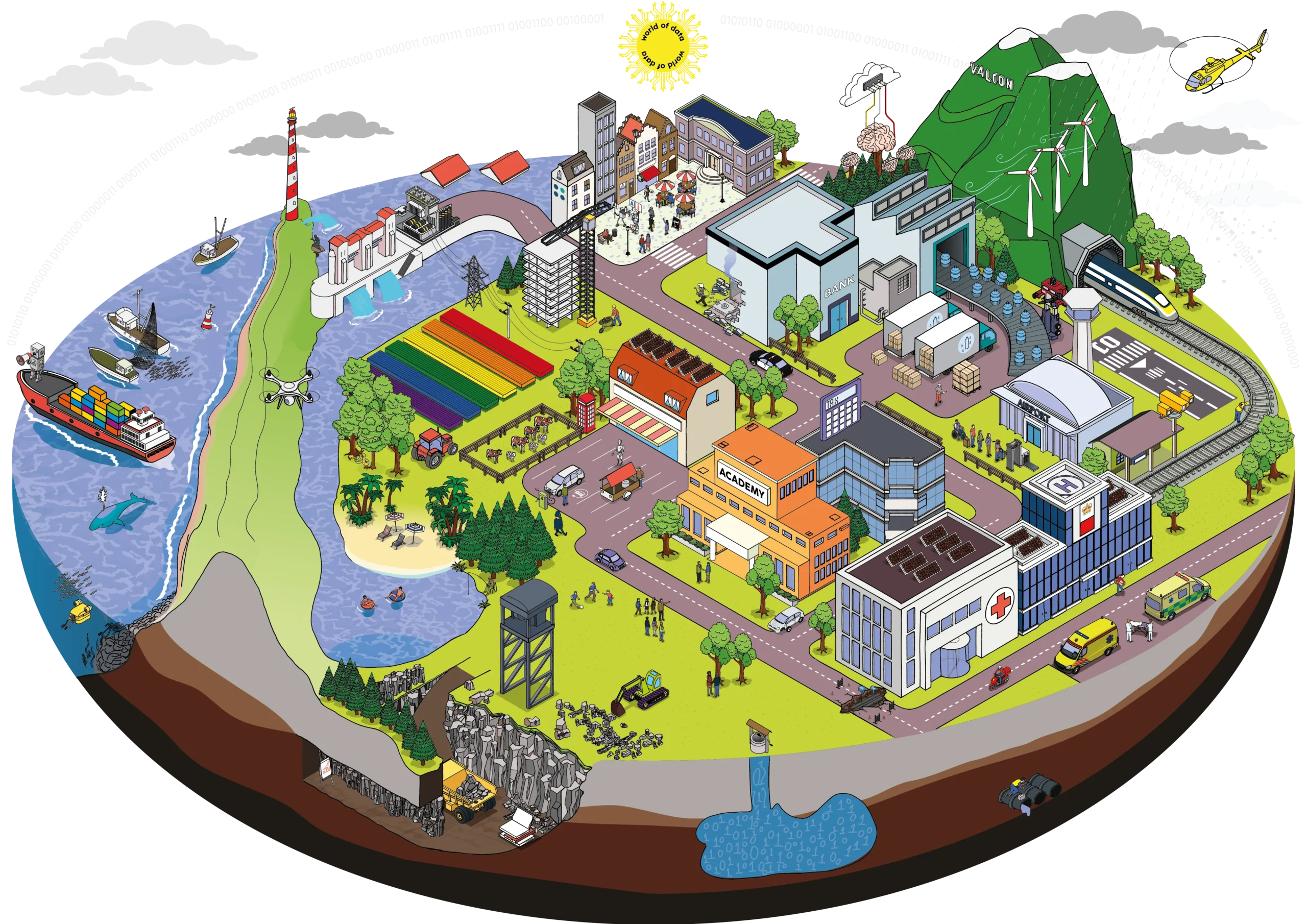Although the business model is somewhat different, education is an industry like any other. That means that it will also benefit from the newest technological advancements, especially when we consider the enormous strides recently taken in the AI landscape.
EdTech refers to platforms which aim to improve both the educator’s and the student’s experiences with teaching and learning. That is why this field is projected to grow at a steady rate of 13.6% annually and reach a worth of nearly $350 billion by 2030.
As impressive as this statistic sounds, staying in pace with your competition is never easy. So, if you want to be a part of this growth and see your company thrive, it’s important to be able to see ahead of the curve and be prepared for new trends.
For that reason, this article explores the top 5 EdTech trends that are forecast to be the most impactful in the next few years.
Remote learning or eLearning
Remote learning is nothing new, especially in the last few years since the pandemic forced many students into online schools. This, however, could be considered a good thing because it pushed innovation in the eLearning sphere forward.
Still, eLearning isn’t reserved only for students who are still in the formal education system. Many companies are offering remote learning via courses as a benefit for their employees as a way to help them hone their skills. This is not only a great way to increase their knowledge but also an excellent booster of motivation – research has found that morale was greater by 18% in employees who attended online courses in comparison to those who didn’t.
An increase in demand for eLearning means that many schools and companies are seeking platforms that will enable them to reap all the benefits. So far, many have utilised other platforms for education purposes – think Zoom, Skype, and even Discord. However, clients are noticing that it would be much more convenient if all their remote learning needs were met in one place. That is to say that specialised eLearning platforms are on the rise.
Ideally, such a platform would include:
- Video, voice, and message communication channels,
- Material libraries,
- Streamlined administrative duties (e.g., auto-check for tests and lesson plan templates).
So, even if you already have a platform but now feel that it’s time to enrich it with one (or more!) of these features – Valcon can help. We’re not only experts at creating platforms but also at expanding existing ones, always in consultation with you and based on your ideas.
Gamification
Although it may be unpleasant to admit, the fact is that younger generations of students have a significantly shorter attention span than earlier generations. That’s why EdTech experts need to keep in mind that their platforms need to have an element of entertainment on top of being useful and educational.
Gamification refers to incorporating traditionally game-related elements into a non-game setting. This has always been present in education, with classroom games being a beloved activity among students for centuries. But, as learning goes digital, so do these games.
One of the earlier examples is MinecraftEdu, a game that combines the very popular block-building game Minecraft with lessons on architecture, ratios, and other related aspects. Although this example is a standalone game, this isn’t the only model of gamification. Your platform can include anything that fits your audience – the beauty of this trend is in the creativity it allows.
Gamification is also not restricted to young learners. Adults will also benefit from, for example, competitive elements in their learning journey as a motivator to continue. A great example of this would be Duolingo’s leaderboard and streak system that encourages users to complete lessons every day.
Incorporating blockchain mechanisms
Educational institutions handle great quantities of sensitive data – from personal information on students and staff to course materials and other resources. That’s why the security of all of this data is of utmost importance, especially since most (if not all of it) is stored digitally.
Other than this, blockchain can also be utilised to allow students to better manage essential data, such as proof of their academic accomplishments.
One of the main benefits of incorporating blockchain technologies into an EdTech platform is that it enables clients to make a step towards a paperless business. This trend has steadily been rising for several years now and is part of a larger trend towards a more sustainable and eco-friendly business world.
Artificial Intelligence
There has been a lot of talk about AI, especially in terms of how it will impact education. There are many practical applications that will improve the learners’ experience, and which aren’t difficult to implement into an EdTech platform.
For example, AI chatbots can be used to help students get a better grasp of lessons. By feeding all curriculum information into the bot, it will be prepared to answer any questions that the students may have and also present it in a way that may be easier for them to understand.
Other than that, AI can be used to make the staff’s jobs easier. For example, AI systems can be trained to grade tests, provide useful feedback, and even create their own sets of questions based on materials. Administrative tasks can also be made simpler, with bots creating lesson plans and streamlining the tedious admission processes.
Immersive learning through XR
XR stands for Extended Reality, which encompasses both Augmented and Virtual Reality technologies. This type of innovation has been in use in education for some time. For example, medical students use VR goggles to simulate any kind of surgery before stepping into an actual operating room.
This same principle can be applied to almost anything that requires practical knowledge, regardless of the learners’ age.
The benefits of this practice are numerous, but the main one is the improvement of the learning environment. Making the classroom a technologically advanced space that offers this sort of exciting opportunity will make the institution a desirable employer and attract more clients. In turn, EdTech platforms will become more and more popular among schools. So, if you’re looking to boost your business, it’s best to be at the forefront of this revolution.
Summary
To sum up this article, let us restate how EdTech is expected to grow steadily over the oncoming years and how important it is to stay on top of the competition by being on top of the latest trends. These trends include technological innovations such as eLearning, gamification, blockchain, AI, & XR.
If you want your platform to achieve great success, you’ll need to increase its attractiveness by implementing these advanced features. As end users find them valuable and exciting, the demand grows for institutions to reach out to providers to purchase their platforms.
How Valcon can help your EdTech platform
Valcon is one of the pioneers in implementing the latest SaaS features and helping our clients get the most out of EdTech. Our top experts are experienced in different fields of software development and can help industry experts stay on top of the game.
If you’re just starting and need an EdTech platform built from the ground up, we can help you develop your idea from the brainstorming phase. Or, if you’ve already got a platform but are now looking to improve it with new features, our teams can handle that task as well.
Want to learn more? If you would like to learn more, please email [email protected] and we’ll be in touch right away.












